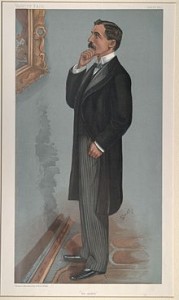“Rats in a Hole”: Churchill’s Apology
Imagine if the President of the United States declared, “We will dig out terrorists ‘like rats in a hole.” Many would applaud and think maybe they had misjudged him. Or would they?
A colleague sends an exchange in the House of Commons on 7 March 1916. “Colonel Churchill,” recently returned from the Front but still a Member of Parliament, was speaking about the naval war with Germany. British naval planners must provide, Churchill was saying,
against what will be a continually increasing element of the unknown. I must also just point out another argument which shows that, great as were the anxieties with which we were faced in the first four months of the War, they have not by any means been removed, or, indeed, sensibly diminished by the course of events. The House will remember the old argument I used to feed them with, that of the average moment and the selected moment….

Mr. G. Dennison Faber (Cons., Clapham) interrupted: “What about ‘digging them out’?”
Churchill reddened: “I agree with the Hon. Member. It was a very foolish phrase, and I regret that it slipped out.”
Mr. Faber kindly replied: “I am sorry I said it.”
What was all that about, my colleague asked?
Faber was alluding to, and Churchill was regretting, Churchill’s remark on 21 September 1914, with World War I less than two months old.
Addressing a recruitment rally in Liverpool, impatient and frustrated at the German High Seas Fleet remaining in port, refusing to venture into the North Sea, Churchill told an audience of 15,000:
“Although we hope the navy will have a chance of settling the question of the German Fleet, yet if they do not come out and fight in time of war they will be dug out like rats in a hole.”
Tut-tut! King George V thought Churchill’s outburst “undignified and ungentlemanly.” Several crusty Conservatives said Churchill had an unbalanced mind!
It reminded me of what Churchill wrote about the “Phoney War” between September 1939 and April 1940, when the French and Germans eyed each other across the border:
This idea of not irritating the enemy did not commend itself to me.…Good, decent, civilised people, it appeared, must never themselves strike till after they have been struck dead….On the one side endless discussions about trivial points, no decisions taken, or if taken rescinded, and the rule “don’t be unkind to the enemy; you will only make him angry.” On the other, doom preparing—a vast machine grinding forward ready to break upon us!
This idea of not irritating the enemy has its counterpart today. Let us hope that in 2015 we don’t strike until we have been struck dead.






